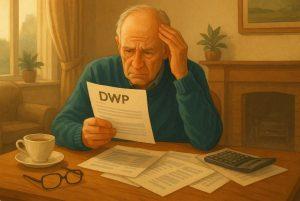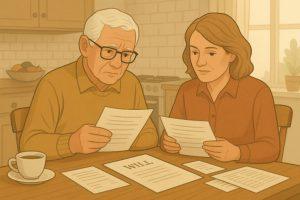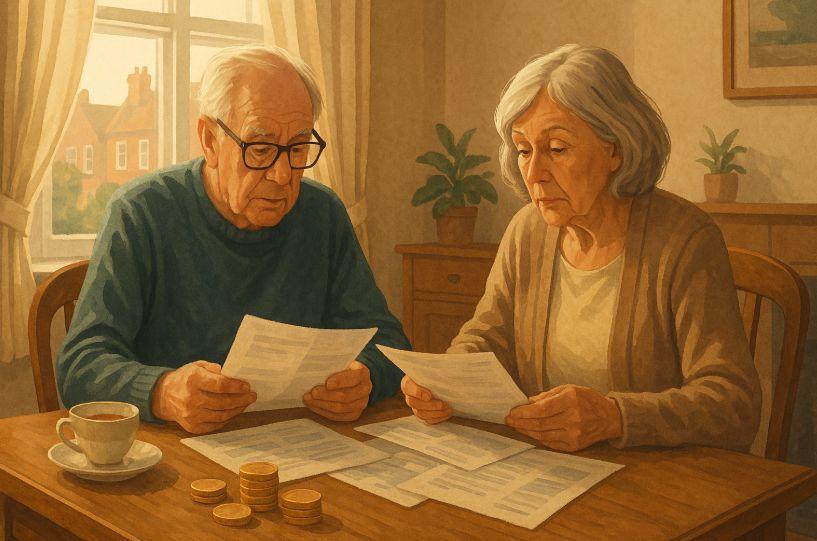The UK’s state pension system is a lifeline for millions of retirees, ensuring they have a stable income in their later years. However, a series of Basic State Pension DWP payment errors have recently come to light, leaving thousands of pensioners underpaid. For many, these mistakes have gone unnoticed for years, meaning they could be owed significant sums in back payments.
Understanding how these errors occur, identifying whether you are affected, and knowing the steps to recover what you are owed can be crucial for your financial security. This guide explores every aspect of state pension underpayments and provides actionable advice for pensioners in London and across the UK.
What Are Basic State Pension DWP Payment Errors?

Basic State Pension DWP payment errors occur when pensioners receive less than their correct entitlement due to administrative mistakes, outdated records, or system miscalculations. These errors primarily affect older pensioners who reached retirement age before the New State Pension system launched in 2016.
The Role of the Department for Work and Pensions (DWP)
The DWP is responsible for managing state pensions in the UK, including calculating and issuing monthly payments. While the system is designed to be reliable, errors often arise due to complex eligibility rules, incomplete National Insurance (NI) records, or manual processing mistakes. Pensioners who rely heavily on these payments can be severely affected if errors go unnoticed.
How Pension Underpayments Usually Occur?
Pension underpayments often involve pensioners who were entitled to claim based on their spouse’s NI contributions or those who deferred their pension but were not credited correctly. Others had gaps in their NI records that were never updated. In some cases, pensioners have lived for years on reduced incomes without realising they were entitled to much more.
Why Do State Pension Payment Mistakes Happen in the UK?
State pension errors are rooted in a combination of historical policy changes and administrative weaknesses.
Historical Miscalculations
The UK pension system has undergone multiple reforms. Prior to 2016, pension rules were particularly complicated for married women and widows, as their entitlement depended on their spouse’s NI record. If these links were not updated automatically, pensioners received lower payments than they were due.
The Human and Financial Impact
These errors have left pensioners short of thousands of pounds. For some, this meant struggling to pay for household bills, medical needs, and other essentials. Beyond the financial impact, discovering a long-term underpayment can also create frustration and erode trust in government systems.
How Can You Check If You Are Owed Money by the DWP?
If you are concerned that your pension might be lower than it should be, checking your entitlement is straightforward but essential.
Reviewing Your State Pension
You can access your State Pension forecast online through the official GOV.UK website. This tool allows you to review both your current payments and projected entitlements.
Verifying Your National Insurance Record
Missing or incorrect NI contributions are a common source of underpayment. Pensioners can request a copy of their NI record to ensure that all qualifying years are properly logged.
Common Underpayment Scenarios and Typical Back Payments
| Scenario | Who It Affects | Estimated Back Payment |
| Married woman not upgraded automatically | Women retired before April 2016 | £3,000 – £8,900+ |
| Widow or widower not updated after spouse’s death | Surviving spouses | £5,000 – £10,000+ |
| Deferred pension errors | Pensioners who postponed claiming | £1,000 – £6,000+ |
| NI record gaps | Anyone with missing contribution years | Varies by individual |
What Should You Do If You Discover an Underpayment?

Taking prompt action is key to recovering any money owed.
Contacting the DWP for a Pension Review
Pensioners can call the Pension Service helpline or submit a written request to have their pension reviewed. The DWP will examine the pensioner’s history and determine whether an underpayment has occurred.
Providing Supporting Documentation
When contacting the DWP, pensioners may need to provide their NI number, proof of pension payments, and, in cases involving spousal entitlements, marriage or death certificates. Supplying the right documents can shorten the review period and speed up any payments due.
How Does the DWP Handle Pension Back Payments?
Once an underpayment is confirmed, the DWP issues a lump sum back payment.
Processing Times and Method of Payment
Most back payments are issued directly into the pensioner’s bank account. Depending on the complexity of the case, the process can take from 3 to 12 months. Some pensioners are automatically identified during large-scale DWP reviews, while others must initiate the claim themselves.
Interest and Compensation
Generally, pensioners receive only the underpaid amount without interest. However, in exceptional cases where the underpayment caused severe financial distress, the DWP may consider an additional compensation claim.
Can You Appeal or Challenge a DWP Pension Decision?
Pensioners who are unhappy with the outcome of their DWP review have the right to appeal.
Requesting a Mandatory Reconsideration
The first step is to request a Mandatory Reconsideration, where a new caseworker reviews the claim. This process can lead to adjustments if new evidence or overlooked records are found.
Escalating to the Pensions Ombudsman
If the issue remains unresolved, pensioners can contact the Pensions Ombudsman. This independent body investigates disputes and can order the DWP to correct mistakes and pay compensation if necessary.
How Can Pensioners Avoid Future DWP Payment Errors?

While pensioners cannot control DWP operations, they can take proactive steps to protect their entitlement.
Regular Pension Monitoring
Reviewing your pension annually is essential. Pensioners should keep all official correspondence, maintain updated NI records, and promptly report any life changes, such as a spouse’s death, to avoid delays in adjustments.
Keeping National Insurance Records Accurate
Filling NI gaps early can prevent future underpayments. Pensioners may choose to make voluntary NI contributions if they have missing years, which could increase their future entitlement.
What Government Initiatives Are Addressing Pension Underpayments?
In response to public concern, the UK Government has implemented measures to reduce future errors.
Large-Scale Pension Reviews
The DWP launched a comprehensive review to identify underpayments dating back decades. Thousands of pensioners have already received letters informing them of their eligibility for back payments.
Improving Digital Record Systems
Modernising legacy pension systems is another focus. By transitioning to more reliable digital platforms, the government aims to ensure that future pension calculations are automated and accurate.
How Could Pension Underpayments Affect Estate Planning and Inheritance?

Pension underpayments don’t just impact current retirees they can also affect the financial legacy left behind.
Impact on Estates and Beneficiaries
If a pensioner passes away before receiving their underpayment, the owed amount can usually be claimed by their estate. Executors and beneficiaries should check with the DWP to ensure that any unpaid pension is added to the estate.
Protecting Your Family’s Financial Rights
Keeping clear records and notifying family members about ongoing pension checks can prevent funds from being lost after death. This is particularly important for widows, widowers, and children managing estates.
Conclusion
Basic State Pension DWP payment errors have left thousands of pensioners across the UK short-changed, often for years. Regularly checking pension statements, verifying NI records, and contacting the DWP if something seems amiss are essential steps for ensuring you receive every pound you are entitled to.
Proactive monitoring not only secures your financial stability but also ensures that your family or estate can recover any unpaid amounts in the future.
FAQs
How far back can the DWP correct state pension errors?
Some corrections go back to 1992, depending on the nature of the error.
Can a family member claim backdated pension on behalf of someone?
Yes, with Power of Attorney or as an executor of the estate.
Are widows or widowers eligible for pension back payments?
Yes, many underpayments are linked to surviving spouses who were not upgraded automatically.
What is the average underpayment amount reported by DWP?
It ranges widely but often falls between £1,000 and £10,000 per individual.
Does the DWP automatically correct pension mistakes?
Some are corrected automatically, but many require the pensioner to contact the DWP.
How long does it take to receive back payments?
Typically between 3 and 12 months, depending on the complexity of the case.
Can private pensions be affected by DWP errors?
No, private pensions are not linked to state pension calculations.









Leave feedback about this